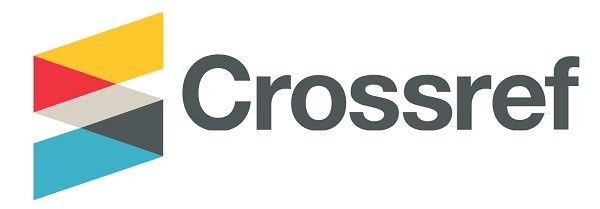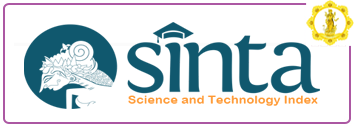Pengaruh Pemanfaatan Fasilitas Belajar Terhadap Mutu Layanan Akademik Program Studi Di Sekolah Pascasarjana Universitas Pendidikan Indonesia
DOI:
https://doi.org/10.25078/jpm.v4i2.573Keywords:
Pemanfaatan Fasilitas Belajar, Mutu Layanan Akademik Program StudiAbstract
One of the efforts to improve the quality of higher education is to provide excellent service on the academic needs of each student as a user (customer) of service college. Several factor which effect the quality of academic services include adequate learning facilities in terms of services that fit the student needs. This research is motivated by the gap between empirical phenomena and t he prevailing theory, where student often do not feel satisfied with the quality of academic services provided, such as facilities are not in accordance with the expectations of students as cutomers. This study aims to describe and analyze the effect of learning facilities utilization towards quality of academic services for study program at the School of Postgraduate Studies Indonesia University of Education. The methode used in this study is a survey methode with a quantitative approach. The data collection technique used is a questionnaire. The sampled-subject are students from 36 existing courses at the School of Postgraduate Studies Indonesia University of Education amounting to 352 student. The result show that the general picture of the quality of academic services for study program at School of Postgraduate Studies Indonesia University of Education are in the category. As for the use of learning facilities in the fairly well category. Utilization of the facilities have a significant influence on the quality of academic services for study program.
Downloads
References
Ahmed, R, & Ali, I. S. (2012). “Implementing TQM Practices in Pakistan Higher Education Institutionsâ€. Pak. j. eng. technol. sci. Vol. 2. (1), 1-26.
Arum, A. S.W. (2007). Manajemen Sarana dan Prasarana Pendidikan. Jakarta: MKM.
Balakrishnan, S. M. W. S. (2013). Assessing Student Satisfaction in Transnational Higher Education. International Journal of Educational Management. Vol. 27. (2), 143-156.
Barnawi & Arifin, M. (2012). Manajemen Sarana dan Prasarana Sekolah. Jogjakarta: Ar-Ruzz Media.
Blandford, Sonia. (2000). Managing
Chong, S.Y & Ahmed, P. (2014). A Phenomenology of University Sercive Quality Experience. International Journal of Educational Management. Vol. 28. (1), 36-52.
Daryanto & Farid, M. (2013). Konsep Dasar Manajemen Pendidikan di Sekolah. Yogyakarta: Gava Media.
Fernandes, C., et al. (2013). “Understanding Student Satisfaction and Loyalty in the UAE HE Sectorâ€. International Journal of Educational Management. Vol. 27. (6), 613-630.
Furqon. (2011). Statistik Terapan untuk Penelitian. Bandung: Alfabeta.
Hartono. (2008). Statistik Untuk Penelitian. Yogyakarta : Pustaka Pelajar.
Hoy, Charles., et al. (2000). Improving Quality in Education. London: Falmer Press.
Kotler, P. (2008). Marketing Management. New Jersey: Prentice Hall Inc.
Lawanson, et al. (2011). “Provision and Management of School Facilities for the Implementation of UBE Programmeâ€. Journal of Educational and Social Research. Vol. 1. (4), 47-55.
Lovelock, C & Wright, L. (2002). Principle of service marketing and management. New Jersey: Prentice Hall Inc.
Mahajan, R., et al. (2014). “Factors Affecting Quality of Management Education in Indiaâ€. International Journal of Educational Management. Vol. 28. (4), 379-399
Min, Sein & Khoon, C.C. (2013). “Demographic Factors in the Evaluation of Service Quality in Higher Education: International Students’ Perspectiveâ€. international Review of Management and Business Research. Vol. 2. (4), 994-1010.
Minarti, Sri. (2011). Manajemen Sekolah (Mengelola Lembaga Pendidikan Secara Mandiri). Jogjakarta: Ar-ruzz Media.
Mosahab, R., et al. (2010). “Service Quality, Customer Satisfaction and Loyalty: A Test of Mediationâ€. International Business Research. Vol. 3. (4), 72-80.
Naik, K. N. C., et al. (2010) “Service Quality (Servqual) and its Effect on Customer Satisfaction in Retailingâ€. European Journal of Social Sciences. Vol. 16. (2), 231-243.
Rasli, et al. (2012). “Perception of Service Quality in Higher Education: Perspective of Iranian Students in Malaysian Universities “. International Journal of Academic Research in Management (IJARM). Vol. 1. (1), 10-25.
Roberts, W.L. (2009). “Measuring School Facility Conditions: an illustration of the Importance of Purposeâ€. Jurnal Educational Administration. Vol. 47. (3), 368-380.
Rohiat. (2010). Manajemen Sekolah. Bandung: PT. Refika Aditama.
Saginova, O & Belyansky, V. (2008). “Facilitating Innovations in Higher education In Transition Economiesâ€. International Journal of Educational Management. Vol. 22. (4), 341-351.
Sallis, Edward. (2006). Total Quality Management in Education (Manajemen Mutu Pendidikan). Jogjakarta: IRCiSoD.
Shah, T. F. (2013). “Service Qualtiy and Customer Satisfaction in Higher Education in Pakistanâ€. Journal of Qulity and Technology Management. Vol. IX. (IX), 73-89.
Tjiptono, F. (2004). Manajemen Jasa. Yogyakarta: ANDI.
Undang-Undang Pendidikan Tinggi No. 12 tahun 2012.
Uline, C & Moran, T.M. (2008). “The Walls Speak: the Interplay of Quality Facilities, School Climate, and Student Achievementâ€. Jurnal of Educational Administration. Vol. 46. (1), 55-73.
Wang, M. I & Shieh, J. C. (2006). “The relationship between service quality and customer satisfaction : The Example of CJCU Libraryâ€. Journal of Information & Optimization Sciences. Vol. 27. (1), 193-203.
Wilkins, S dan Balakrishnan, S.M. (2013). “Assessing Student Satisfaction in Transnational Higher Educationâ€. International Journal of Educational Management. Vol. 27. (2), 143-156.
Wulandari, D. A., & Juliawan, I. N. (2018). Peningkatan Mutu Pembelajaran Agama Hindu Dalam Mewujudkan Perubahan Mental Siswa. Jurnal Penjaminan Mutu, 4(1), 7-19.
Yeo, R. K. (2008). “Servicing Service Quality in Higher Education: Quest for Excellenceâ€. On the Horizon. Vol. 16. (3), 152 – 161









